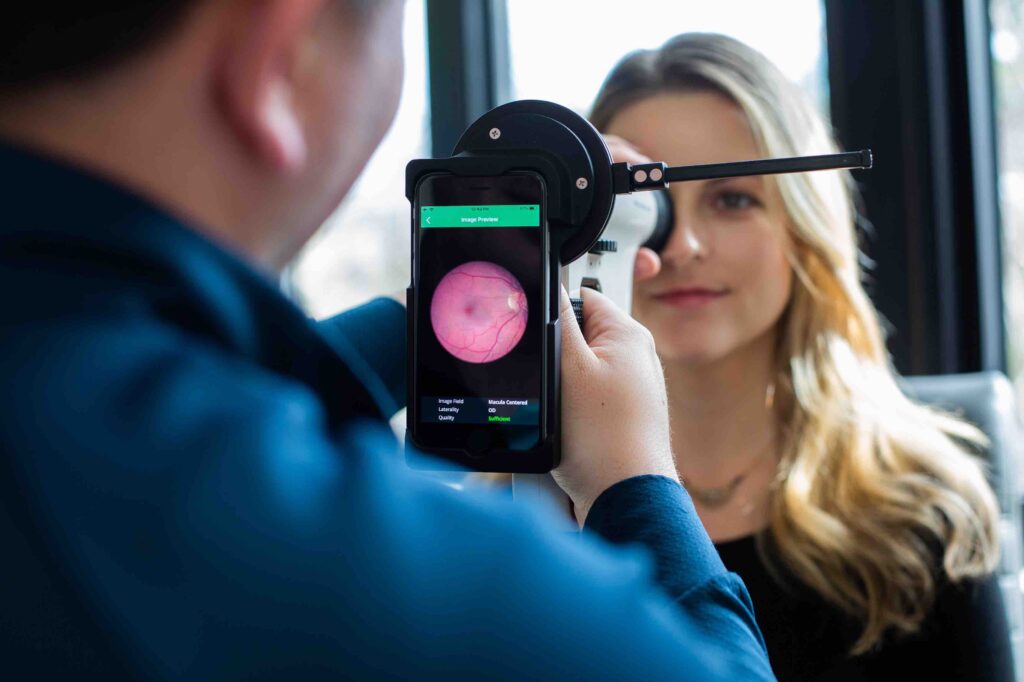HEDIS 2024 Changes and HEDIS Diabetes Measures

Every year, the healthcare industry adopts changes to HEDIS requirements, often including new HEDIS measures for diabetes. In 2024, the NCQA announced additional HEDIS compliance requirements, including several related to diabetes care.
Read on to learn about these changes and how to boost your HEDIS rating in the coming year. We have compiled the additions, retirements, and changes of the 2024 HEDIS measures, along with a few optimizations organizations can make to boost their rating.
What Are HEDIS Ratings?
Introduced in 1991 by the National Committee for Quality Assurance (NCQA), the Healthcare Effectiveness Data and Information Set (HEDIS) is now the gold standard for measuring quality healthcare performance.
Primarily focused on improving preventative care, HEDIS offers a myriad of benefits to the healthcare industry as a whole. It allows employers to determine the best coverage options while equipping healthcare systems to identify which areas of their systems need optimization and which are excelling.
For value-based diabetic care providers, complying with the ever-changing quality measures set in place by HEDIS is critical to meeting a five-star rating and boosting bottom-line performance. But with great ratings comes great responsibility, spurring an active effort for health systems and providers to integrate preventative systems into their practices.

2024 HEDIS Changes
There are several updates to the existing HEDIS measures, including measures that specifically deal with diabetes care. Other updates address the issue of health equity and inclusive practices in healthcare delivery.

Diabetes-specific changes include:
- Glycemic Status Assessment for Patients With Diabetes: Formerly known as “Hemoglobin A1c Control for Patients With Diabetes,” the updated measure has been renamed the Glycemic Status Assessment for Patients With Diabetes. It includes the percentage of members 18–75 years of age with diabetes (types 1 and 2) whose most recent glycemic status (hemoglobin A1c [HbA1c] or glucose management indicator [GMI]) was at the following levels during the measurement year:
- Glycemic Status <8.0%
- Glycemic Status >9.0%
- The NCQA reassessed how to identify individuals with diabetes under these particular measures:
- Glycemic Status Assessment for Patients With Diabetes
- Blood Pressure Control for Patients With Diabetes
- Eye Exam for Patients With Diabetes
- Kidney Health Evaluation for Patients With Diabetes
- Statin Therapy for Patients With Diabetes
- Diabetes Monitoring for People With Diabetes and Schizophrenia
- Emergency Department Visits for Hypoglycemia in Older Adults With Diabetes
The new specifications are meant to ensure that individuals taking diabetes-related medications for reasons unrelated to diabetes aren’t included in the measurement. This is accomplished by adding a diabetes diagnosis requirement in the pharmacy method.
- Race/Ethnicity Classification: There are new race and ethnicity stratifications for nine existing HEDIS measures, two of which are specific to diabetes: Kidney Health Evaluation for Patients With Diabetes and Eye Exam for Patients With Diabetes.
IRIS is a leader in facilitating retinal screenings in the primary care setting. Our retinal care solution can directly improve your HEDIS rating by allowing patients to get a retinal screening while in their primary care office or with in-home care. This reduces the need for referrals to ophthalmology practices and ensures that more patients get the eye screenings they need.

Why Is HEDIS Compliance Important to Providers?
HEDIS compliance is important to providers for a number of reasons, including:
- Use as a tool to ensure effective care for patients
- Assistance in identifying gaps in patient care
- Generation of additional revenue that providers can earn through Pay for Quality, Value-Based Services, etc.
Top HEDIS Challenges
From the standpoint of a provider, meeting HEDIS measures is difficult to achieve. In fact, 44% of providers think value-based healthcare is a good idea in theory but very hard to execute in practice. This is due to two main challenges:
- Lack of resources
The NCQA collects HEDIS data using health insurance claims, surveys, and clinical documentation submitted by providers. This requires a great deal of database management, and providers can have a difficult time finding proper staff to manage and understand this data. Statistics show that:
- 32% of providers find busywork like EHR data entry to be the biggest frustration.
- 47% have difficulty reporting and collecting quality metric data, and 34% have a hard time training staff to understand it.
- Insurers and providers routinely lack IT support, making it difficult to collect data required for HEDIS quality measures.
- Disorganized data and collection
With an increase in the amount of healthcare systems undergoing a digital transformation, the sheer amount of data providers have to manage has increased significantly. With more clinical information available, providers are facing more complexities in terms of managing, measuring, securing, and analyzing healthcare data.
Additionally, data collection is inconsistent across practices. Provider chart retrieval and abstraction of data is a complex process, especially when working with providers to move from paper charts to electronic medical record systems (EMR).
For healthcare systems, getting providers to respond and release records upon request is a challenge and is likely due to their lack of resources. Another challenge is the sheer number of formats in which data is sent to these providers, including fax, secure FTP site, EMR, or traditional mail.
How To Close Gaps in Diabetes HEDIS Measures
As your organization seeks solutions to help improve its HEDIS compliance, IRIS’s retinal screening solution is a vital tool to integrate into your organization. Diabetic retinopathy (DR) exams are necessary to monitor the eye health of diabetic patients because of the significant impact diabetes can have on a patient’s vision. As one of the primary HEDIS compliance measures for comprehensive diabetic care, ensuring that staff across different healthcare settings can easily administer annual diabetic retinopathy exams to diabetic patients is key to optimal patient health and providing an excellent quality of care.
IRIS enables any healthcare center that interacts with diabetics to do just that by providing the capabilities to perform diabetic retinal screenings, reducing the need for patients to book multiple preventative screening appointments aside from their regular doctors’ visits.
In addition, the IRIS Reading Center (IRC) is composed of licensed eye care providers who provide comprehensive and thorough diabetic retinopathy exam results quickly, allowing your organization a heightened ability to achieve HEDIS compliance for the diabetic eye exam while providing more convenient care for your diabetic patient population.
Are you curious to learn more about how this could allow your practice to improve eye health and reduce preventable blindness? Try out our ROI calculator, or reach out to us so we can show you how it works first-hand.
SM 166, Rev A
Get started with IRIS today.
Want to know if IRIS is right for you? Schedule a one-on-one consultation with our team. We’re here to help.